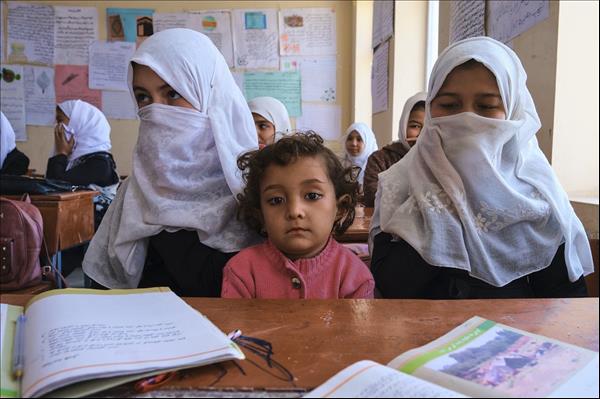
One Year On, Taliban Making No Progress
The Taliban have shown that they are both uninterested in and incapable of rebuilding their poverty-stricken country. If Afghanistan is to recover it will be despite the Taliban, not because of them.
This comes as Afghanistan witnesses the first anniversary of the Taliban's rule since the fall of Kabul on August 15, 2021. The takeover by the Taliban came as the US-led international community rapidly withdrew its forces and support, leading to the collapse of the Western-backed government.
Hundreds of thousands of Afghans attempted to flee the country , with scenes of chaos at Hamid Karzai International Airport, including US and allied forces quickly trying to evacuate their citizens and Afghan nationals. On August 26, terrorist attackers exploded a bomb in the crowds waiting outside the airport, killing more than 100 people.
A year later, Afghanistan continues to suffer from myriad problems.
The economy collapsed last year, driven by the withdrawal of international donor funding, the freezing of billions of dollars of Afghan central bank assets by the United States and a sudden loss in investment confidence. This has led to mass unemployment. Among those struggling to find jobs are thousands of now unemployed soldiers from the former Afghan security forces.
This has precipitated a dire humanitarian crisis. The United Nations Development Program has advised that Afghanistan is facing“universal poverty ,” with 97% of Afghans now living below the poverty line and suffering from emergency levels of food insecurity. This has led to malnutrition and the collapse of the health-care system.
The World Food Program has reported that many families have resorted to either sending their children to work or selling them for money to pay for food.
While the Taliban were not responsible for the Covid-19 pandemic or natural disasters like drought and earthquakes, which have made the economic and humanitarian situation worse, it is ultimately their responsibility to feed their people and rebuild the country.
The Taliban's lackluster response to the devastating earthquake in Paktika province in June highlights their inability to respond adequately to the needs of the people they claim to represent.
The Taliban are also responsible for the ongoing lack of international financial aid because they lack respect for human rights. Their ideologically driven decision to restrict the rights of women and girls and their attacks on former government employees, journalists and human-rights advocates have alienated them from the international community.
In other words, the Taliban's backward position on human rights has exacerbated the economic and humanitarian crisis, with international governments and donors refusing to legitimize the Taliban and unfreeze assets until these rights are respected.
If the Taliban regime is interested in alleviating the humanitarian crisis, it needs to show that it is capable of being a responsible government for all its people.
This can be achieved by putting its desire for international recognition above its fundamentalist ideology.
Respecting international human-rights norms, especially for women and girls, is a good start. This means allowing females to be educated and enter the workforce, and allowing their participation in society and politics. The Taliban also need to cease their attacks on former government workers, journalists and human-rights activists.
The Taliban must also fulfill their promise of forming an inclusive government. In September 2021, the United Nations Security Council approved a resolution demanding that the Taliban establish a system of governance that includes minority groups and women. The Taliban would do well to listen to this advice.
Respecting the rights of all Afghans and embracing inclusivity in politics would go a long way toward gaining the international legitimacy the Taliban crave. It would also result in the unfreezing of billions of dollars in assets that would allow the regime, if it is interested, to rebuild the country and alleviate the humanitarian crisis.
But the Taliban have promised inclusive government and a more moderate form of Islamic rule before. While they crave legitimacy, they equally seem incapable of accommodating human rights and international law, and a more inclusive and representative system of government.
If the Taliban are to prove they are able to solve the many crises Afghanistan faces, they need to decide whether their strict interpretation of fundamentalist Islam is compatible with the internationally accepted human-rights regime.
If they cannot reconcile the two, then Afghans will continue to suffer and the pressure on the Taliban will increase.
The Taliban would know full well that Afghanistan is a harsh land, where its people do not tolerate poor rulers for long.

Legal Disclaimer:
MENAFN provides the
information “as is” without warranty of any kind. We do not accept
any responsibility or liability for the accuracy, content, images,
videos, licenses, completeness, legality, or reliability of the information
contained in this article. If you have any complaints or copyright
issues related to this article, kindly contact the provider above.


















Comments
No comment